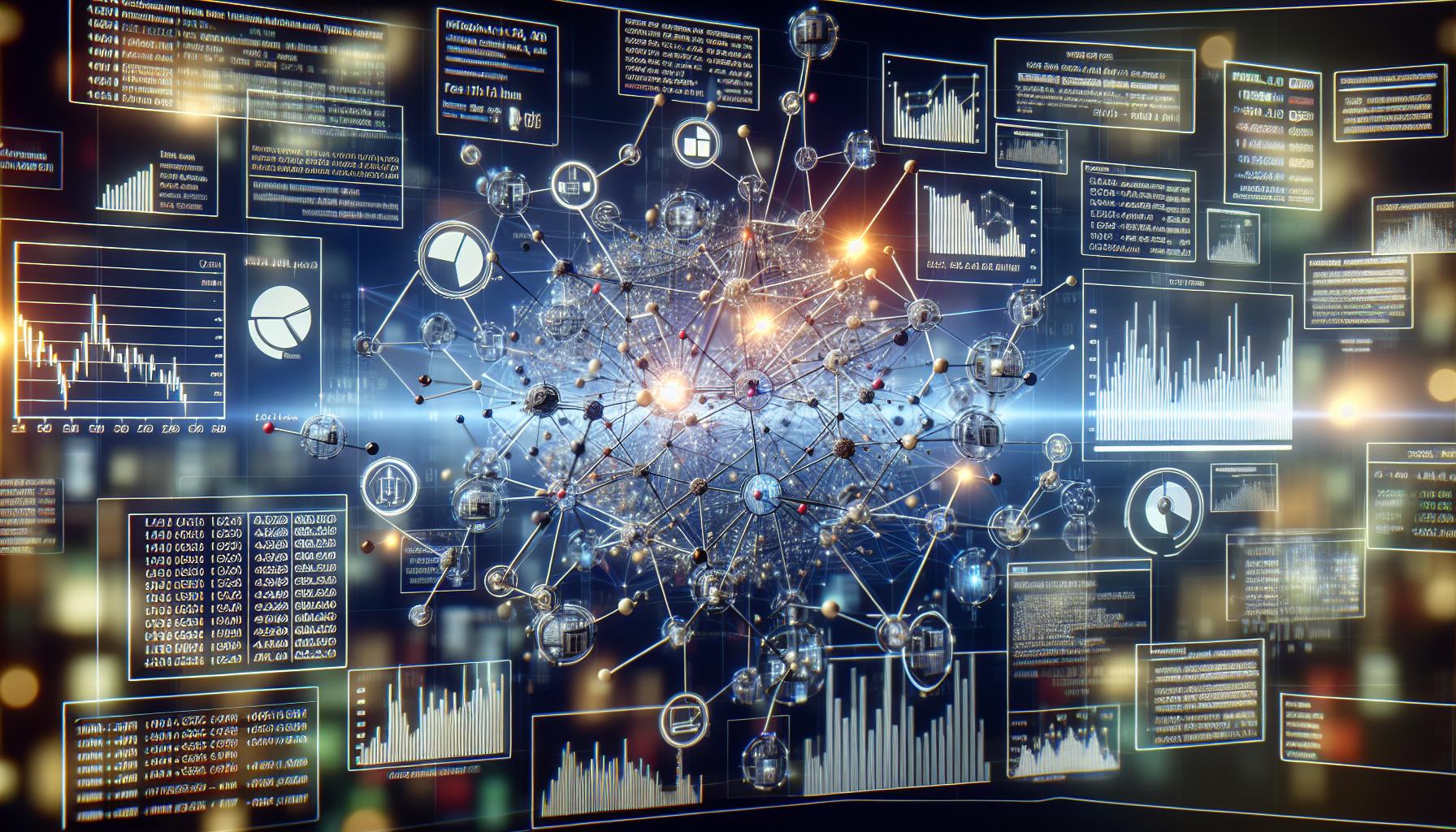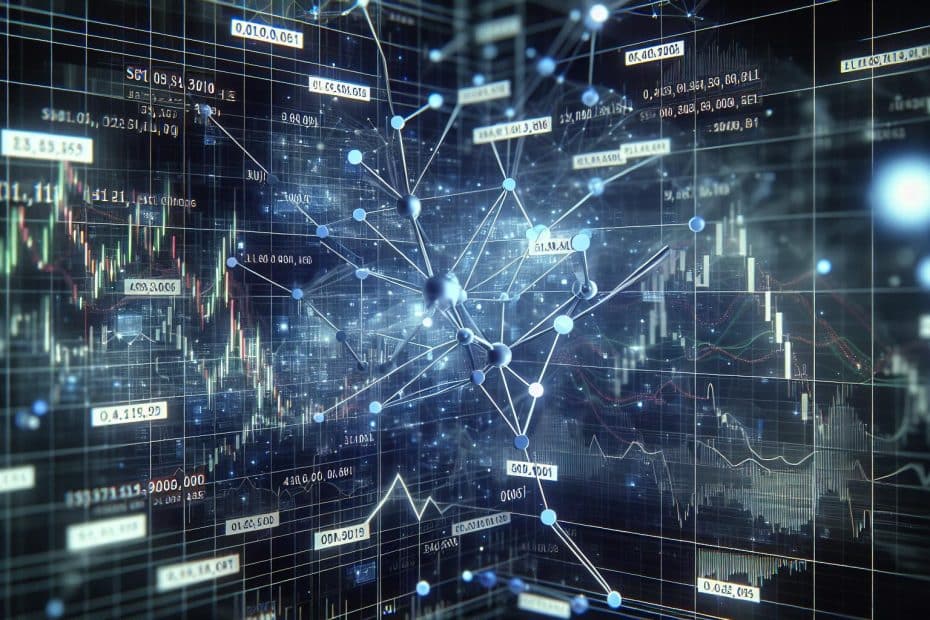Are you looking to delve into the world of AI trading execution efficiency? In today’s fast-paced financial markets, the use of artificial intelligence has revolutionized the way trades are executed. From algorithmic trading to machine learning models, AI plays a crucial role in optimizing trading strategies and enhancing execution speed.
Imagine having the ability to analyze vast amounts of market data in real-time, making split-second decisions, and executing trades with precision. AI trading systems are designed to do just that, providing traders with a competitive edge in a dynamic environment where every millisecond counts.
In this article, we’ll explore the impact of AI on trading execution efficiency, how it improves trade performance, and the key factors to consider when implementing AI-driven trading strategies. Stay tuned to discover how AI is reshaping the landscape of financial markets and empowering traders with advanced tools for success.
Understanding AI Trading Execution Efficiency
In the fast-paced realm of financial markets, artificial intelligence (AI) plays a pivotal role in bolstering trading execution efficiency. Through algorithmic trading and sophisticated machine learning models, AI optimizes trading strategies, hastens trade execution, and provides traders with a competitive edge where every millisecond counts.
The Role of AI in Modern Trading
AI’s integration into trading processes revolutionizes the landscape by enhancing efficiency and precision. With superhuman capabilities, AI trading systems outperform traditional approaches, delivering significant returns on investment. For instance, AI trading algorithms can yield profits that are 500% higher than manual trading strategies, showcasing the power of AI in enhancing trading outcomes.
Measuring Execution Efficiency in AI Systems
AI’s predictive models and pattern recognition abilities enable precise decision-making in high-frequency trading environments. These adaptive techniques leverage big data to backtest and refine strategies, leading to consistent gains and improved execution efficiency. The speed and accuracy of AI-driven trading decisions illustrate the future potential of human-AI collaboration in financial markets.
Key Components of AI Trading Systems

When diving into the realm of AI trading systems, it’s crucial to understand the key components that make these systems exceptionally efficient and powerful in today’s fast-moving financial markets. Let’s explore the essential elements that drive the success of AI trading systems.
Algorithms and Machine Learning Models
In AI trading systems, algorithms and machine learning models play a pivotal role in achieving superior performance and outpacing traditional trading methods. These sophisticated models utilize historical data and real-time market information to identify patterns, trends, and opportunities that may not be apparent to human traders. By applying complex mathematical algorithms, AI systems can make lightning-fast decisions based on data analysis, enabling traders to capitalize on market movements with incredible precision.
Real-Time Data Analysis and Processing
Real-time data analysis and processing are at the core of AI trading systems, allowing for rapid decision-making and execution of trades. AI algorithms sift through vast amounts of market data in real time, analyzing price movements, trade volumes, news releases, and other relevant information to identify profitable trading opportunities. By processing data instantaneously and leveraging advanced analytical tools, AI systems can execute trades at optimal prices and quantities, giving traders a significant edge in the market.
By harnessing the power of algorithms, machine learning models, and real-time data analysis, AI trading systems offer unparalleled efficiency, accuracy, and speed in executing trades. These components work in harmony to deliver consistent results, maximize profits, and empower traders with a competitive advantage in today’s dynamic financial landscape.
Benefits of AI in Trade Execution
Speed and Accuracy
Enhancing trade execution speed and accuracy, AI provides traders with a significant edge in the financial markets. By leveraging superhuman AI trading capabilities, you can experience up to a 500% higher ROI compared to traditional methods. The AI trading algorithm outperforms human capabilities, enabling you to achieve 5x gains on your investments.
Data-Driven Decision Making
AI trading systems offer advantages through data-driven decision making. With AI predictive trading models and advanced pattern recognition techniques, you gain a 500% edge over other investors. By harnessing AI’s adaptive trading methods and high-frequency trading domination, you can execute trades with unparalleled speed and precision, leading to consistent 500% AI trading winnings.
The future potential of AI in trade execution lies in its ability to collaborate with human traders, combining the best of AI’s capabilities with human insights for optimal results.
Challenges Faced by AI Trading Systems
Market Volatility and Unpredictable Events
Facing market volatility and unpredictable events, AI trading systems encounter significant challenges in maintaining optimal performance. In times of turbulence, rapid shifts in market conditions can challenge the predictive capabilities of AI algorithms. Despite their superhuman capabilities, AI systems may struggle to adapt quickly enough to unforeseen events, leading to potential trading losses. For AI investors seeking a 500% edge in profits, managing market volatility remains a critical obstacle that requires continuous optimization of predictive models to enhance adaptability.
Ethical Considerations and Regulatory Compliance
Navigating ethical considerations and regulatory compliance poses a key challenge for AI trading systems. As AI algorithms drive trading decisions with high-speed execution, ensuring adherence to ethical standards and regulatory requirements becomes increasingly complex. Maintaining transparency in AI-driven trades and upholding ethical principles while maximizing profits presents a delicate balance. Furthermore, staying compliant with evolving financial regulations demands constant monitoring and adjustment of AI trading strategies. For AI trading systems aiming for consistent winnings and a 5x ROI, meeting regulatory standards without compromising efficiency is a pressing challenge that requires meticulous attention.
In the evolving landscape of AI trading execution efficiency, addressing the challenges of market volatility, unpredictable events, ethical considerations, and regulatory compliance is pivotal for optimizing AI trading systems’ performance and ensuring sustained success. By enhancing adaptability, transparency, and regulatory alignment, AI trading systems can solidify their position as powerful tools for investors seeking substantial gains and competitive advantages in the financial markets.
The Future of AI in Trading Execution
Innovations on the Horizon
In the realm of AI trading execution, continuous innovations are reshaping the landscape, propelling AI systems to new heights. These advancements not only enhance efficiency but also yield significant returns, with AI investors experiencing a remarkable 500% higher profits compared to traditional trading methods. The utilization of AI predictive trading models has enabled traders to tap into the superhuman capabilities of AI algorithms, giving them a substantial edge in the market.
One of the key advantages of AI trading systems is their unparalleled decision speed. By leveraging high-frequency trading strategies, AI algorithms can swiftly process vast amounts of data and execute trades at speeds far surpassing human capabilities. This rapid decision-making process not only enhances efficiency but also enables AI systems to outperform traditional trading methods by a staggering 5x ROI.
Moreover, AI trading systems excel in pattern recognition and adaptive techniques, allowing them to navigate complex market dynamics with ease. These systems harness the power of AI trading pattern recognition to identify profitable opportunities and optimize trading strategies in real-time, ensuring consistent gains for traders.
The Potential Impact on Financial Markets
The integration of AI in trading execution has the potential to revolutionize financial markets fundamentally. AI trading algorithms are not only more efficient but also offer unmatched consistency and precision, providing traders with a significant edge. By harnessing AI’s ability to analyze big data and conduct rigorous backtesting, traders can make well-informed decisions that lead to substantial gains.
AI trading systems also offer a unique advantage through their consistency in performance. Unlike human traders subject to emotional biases and fatigue, AI algorithms maintain a steady approach to trading, delivering consistent results over time. This consistency in performance often translates to a 500% edge for AI investors compared to traditional trading methods.
Looking ahead, the future of AI in trading execution holds immense promise. The collaboration between human traders and AI systems is poised to redefine trading practices, combining human intuition with AI’s analytical prowess to achieve optimal results. As AI trading systems continue to evolve and adapt, their future potential to dominate high-frequency trading and enhance trading execution efficiency is undeniable.
The advancements in AI trading execution are propelling the financial industry into a new era of efficiency and profitability. With AI algorithms demonstrating superior performance, consistency, and adaptability, traders stand to benefit significantly from the revolutionary capabilities of AI in shaping the future of financial markets.
Conclusion
AI trading execution efficiency is revolutionizing the financial markets, offering unparalleled decision speed, pattern recognition, and adaptive techniques. Despite challenges like market volatility and regulatory compliance, AI systems continue to innovate, promising greater profitability and efficiency. The collaborative approach between human traders and AI algorithms is reshaping the industry towards optimal results. With continuous advancements in AI technology, the future of trading execution holds promise for dominating high-frequency trading and enhancing overall market efficiency. Embrace the transformative power of AI in trading to stay ahead in the competitive financial landscape.
Frequently Asked Questions
How does artificial intelligence enhance trading execution efficiency in financial markets?
Artificial intelligence improves trading execution efficiency in financial markets by using algorithmic trading and machine learning models for rapid and precise decision-making based on real-time data analysis.
What are the advantages of AI in trading execution?
AI offers unparalleled decision speed, pattern recognition, and adaptive techniques, providing a competitive edge in making trading decisions in fast-paced markets.
What challenges do AI trading systems face?
AI trading systems encounter challenges such as market volatility and regulatory compliance, requiring continuous innovation to adapt to changing market conditions effectively.
How does AI impact financial markets?
Artificial intelligence has the potential to revolutionize financial markets by providing consistency, precision, and collaborative decision-making between human traders and AI systems, leading to greater profitability and efficiency.
